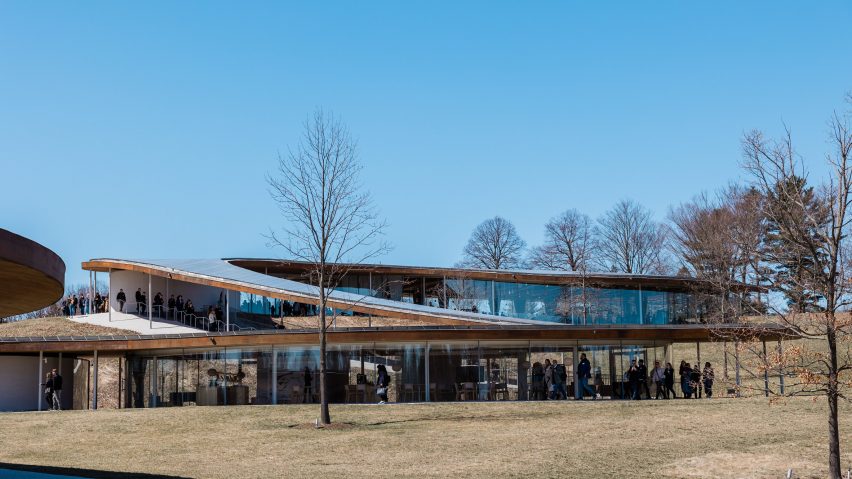
"We can no longer accept the slavery discount" says Design For Freedom founder Sharon Prince
Coalition building, advocacy and technological solutions must be applied to ensure forced and under-paid labour is not used in creating materials for architecture and design projects said speakers at the second Design For Freedom summit in Connecticut.
The conference included a slate of speakers, including founder Sharon Prince, who told the audience that changes need to be made to the industry if the issue of forced labour was to be solved, noting that the lower prices in design materials are often the result of unfair labour practices.
"What I hear a lot is the question 'is this going to cost more?'" she said. "So rather than say is this 'going to cost more' we're going to ask 'am I okay with the slavery discount?'"
"We can no longer accept the slavery discount," she added.
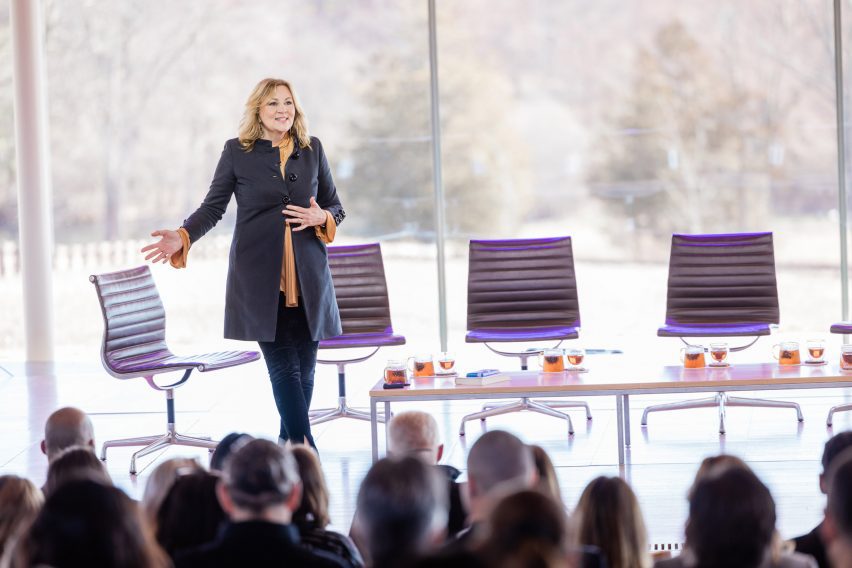
Gathered at the SANAA-designed headquarters of Grace Farms in New Canaan Connecticut, the conference included presentations of pilot projects from studios like SO-IL and Diana Kellogg Architects, as well as discussions on the business case for design for freedom and supply chain transparency.
Maha Khan, a representative from the finance against slavery and trafficking group at the United Nations University Centre for Policy Research said that the construction industry is a large contributor to the problem of forced labour worldwide.
"We often refer to modern slavery as a tragic market failure, which it is," she said, noting that of the 50 million people living under conditions of modern slavery, more than half are made to do forced labour. She also added that more than 16 per cent of that number is within the construction industry.
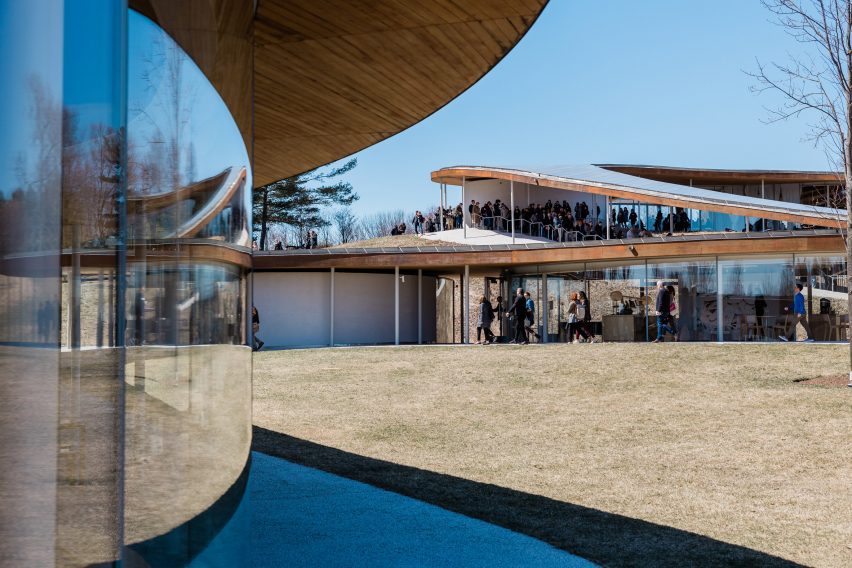
In order to find solutions, communication between members of the industry was a big-ticket talking point among the speakers and facilitators.
"When we look at a problem as overwhelming and as vast and urgent as modern slavery, we acknowledge that successful outcomes are not going to happen in silos," Grace Farms ethical materials director Nora Rizzo said.
During the talks, members of large construction companies such as Turner Construction and Lendlease Americas said that certification requirements from subcontractors were an essential part.
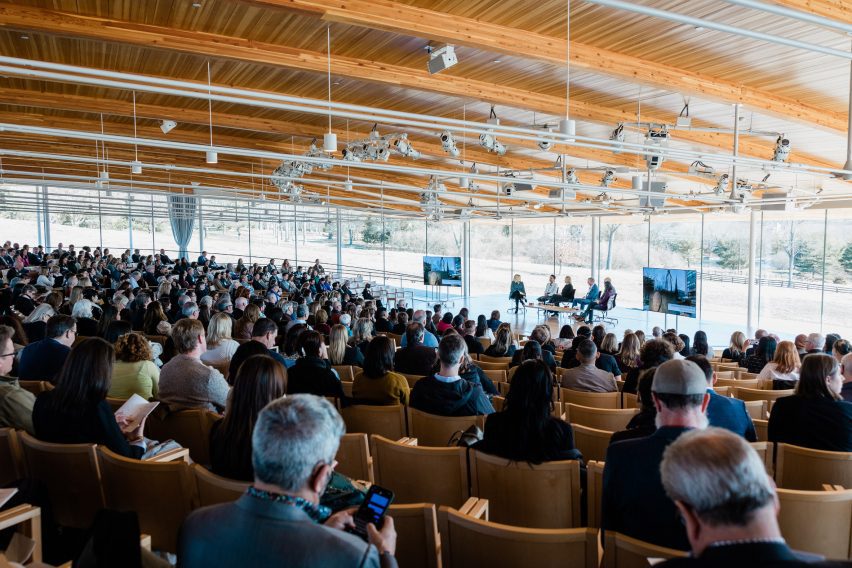
A lack of transparency and complex supply systems were stated as impediments to the process. To aid in this process, Design for Freedom contributors have put together a toolkit that provides a "comprehensive resource for design and construction professionals to implement ethical, forced-labor-free materials sourcing strategies into their practices".
Large architectural studios such as SO-IL and BIG presented recent projects made with an attempt to trace materials back to their source to implement more ethical designs, while New York architecture studio SHoP Architects presented sourcing software that would try and capture the life-cycle of all materials involved in a project.
Designers are complicit
BIG partner Kai-Uwe Bergmann told Dezeen that much of the sourcing process has been "so far removed from the actual design and specification" that designers are "complicit in not understanding how materials are sourced and made, perhaps using forced labor".
"So by actually requiring companies to certify that everything is fair trade, without the forced labor issue, is the absolute right thing," he said.
"So on BIG's behalf, we're very committed to finding both pilot projects and really integrating [the principles] into the way that we work. Because we care about where materials are sourced."
Bergmann cited the studio's recently announced Juneteenth Museum in Texas as an example of a project where the studio is making an effort to monitor the ethical sourcing of the materials.
US State Department's Bureau of Overseas Building Operations also made a commitment at the conference to "educate their employees about Design for Freedom and integrate Design for Freedom principles into future projects".
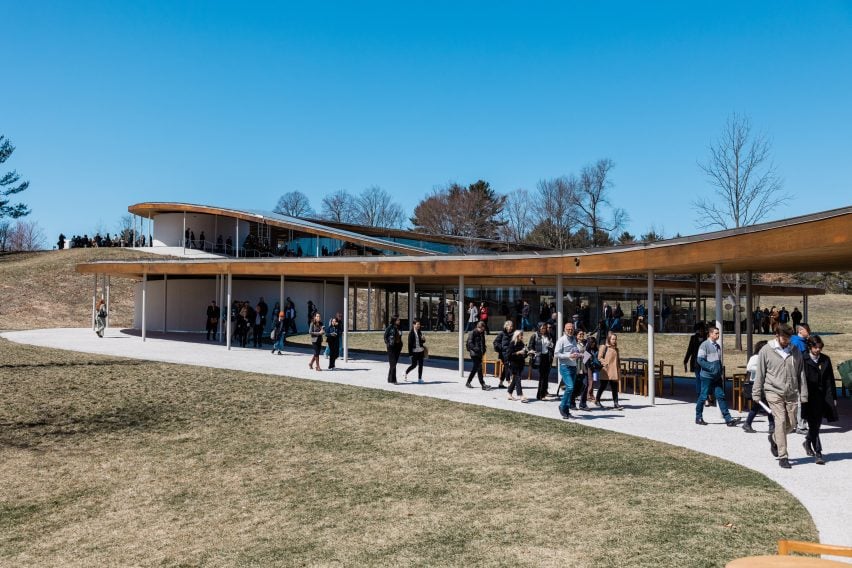
Members from engineering studios such as ARUP and representatives from furniture brands such as Herman Miller were also speakers at the event.
Design for Freedom was founded by Prince in 2017. This year's conference was the organisation's second.
For more events, talks and exhibitions in architecture and design, please visit Dezeen's Events Guide.
The photography is by Jack Dolata.